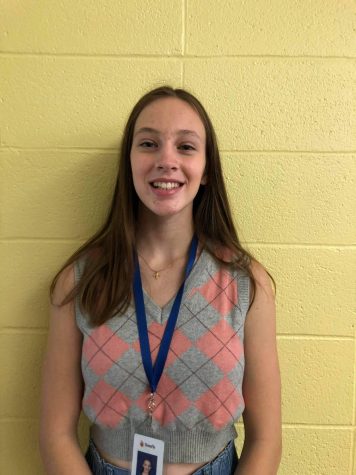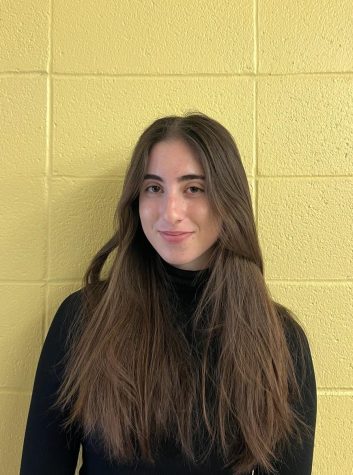AP Seminar and AP Research: THS’s New Courses
Here is everything you need to know about AP Seminar and AP Research, THS’s new research-based classes.
February 11, 2022
Attention: all current freshmen and sophomores: have you ever thought so long about a certain topic that you found yourself stuck in a deep, multi-hour-long Google search? Have you ever wished for an opportunity to work on a project on a subject you’re truly passionate about? Are you interested in current events, real-world problems, and making a difference in the world? If so, you may want to consider enrolling in Tenafly High School’s fairly new courses: AP Seminar and AP Research.
AP Seminar and AP Research are two research-extensive courses that, together, make up the AP Capstone program. The program is a two-year-long commitment—the first year, students take AP Seminar, and the second year, students take AP Research. Through the two classes, students are given the opportunity to explore topics of their interest while building research skills helpful for other high school classes, college, and beyond. If a student completes both years of the program they are eligible to receive either an AP Capstone Diploma or an AP Seminar and Research Certificate, depending on their other coursework. To learn more about the requirements for the diploma and certificate, click here.
The program was first offered to Tenafly High School students during the 2020-2021 school year. This year, the first batch of students to have taken both courses will complete the program. Here’s everything you need to know about the classes, coming from two past AP Seminar and current AP Research Students.
AP Seminar:
The first class students take is AP Seminar, currently taught by THS English teacher Mrs. Malanka. Throughout the year, students partake in multiple research projects—some individual, some cooperative—in order to build fundamental research skills. The first few months teach students how to examine problems through multiple scholarly perspectives, as well as how to use resources to begin delving deeper into topics. These skills not only become integral later on in the program, but are also applicable to many other THS classes. “AP Seminar, I think, really gets at the heart of what is meant by the phrase ‘21st century skills’ for education,” Mrs. Malanka said. In past years, the first few months of the year have also consisted of a deep-dive into the memoir Educated, by Tara Westover.
In the second half of the year, students partake in individual research of their own interest, working towards developing a research portfolio, which is submitted to College Board as part of the class. One’s AP Seminar score is determined by two research presentations and two research papers, in addition to the standard AP exam. To develop their portfolios, students research in groups, collaborating with one another to research a local, national, or international topic of choice that draws from various subjects. As students progress into the year, enhancing their research, analysis, collaboration, and presentation skills, they complete a more individualized project—the second paper and presentation. Each student’s research questions are individualized and specific to each person’s own interests.
“AP Seminar is a good class for those who are willing to commit time to explore subjects of their interest. It doesn’t mean you need to be the best [writer] either,” Mrs. Malanka said. “But you have to be motivated and you have to be curious… I think [AP Seminar] is an opportunity to really combine the hardcore academic work with real life skills.”
Prevalent topics that have been explored by AP Seminar students at THS include the problem of high school student burnout in the United States, the conversation surrounding the death penalty, and the legalization of recreational marijuana.
AP Research:
In AP Research, the second component of the program, students plan, design, and conduct a year-long research project under the guidance of Mr. Hutchinson, the teacher of the course, as well as experts in their chosen fields. Unlike AP Seminar, the class does not culminate with an AP exam. Instead, students submit an extensive research paper and a presentation which then dictates their score.
The main difference between AP Research and its prerequisite course is found in the depth of the research that is being completed. “[AP Research] is not supposed to [be about] how to do research,” Mr. Hutchinson said. “All of that’s already been covered in AP Seminar. Everyday, from September on, [we] make progress towards independent research projects, and ultimately, each student is in charge of their own research.”
In AP Research, students get to explore various topics of their choice, reporting on their findings within the existing scholarly conversations surrounding their topic. Students spend the first months of the class deeply exploring a scholarly conversation, and then build upon it in the second half of the course by conducting original research in order to fill the “gap” left by researchers in the field. Once students finalize their research questions, they begin the process of gathering data through surveys, interviews, meta-analyses, and more.
The skills focused on in AP Research build off of those developed in AP Seminar: students learn how to construct a research method, how to discover a research “gap,” and how to conduct their projects ethically. Because students only focus on one primary research question throughout the year, the course allows students to explore their chosen topic in a much more extensive way than in any other high school course. “[The class is] very collegiate, even kind of advanced collegiate,” Mr. Hutchinson added. “I think it is very exciting for a lot of students.”
All in all, students walk out of the AP Capstone program with a truly rewarding experience. Many current AP Research students feel that the classes have helped them immensely in better understanding what education can look like after high school. “It was super eye-opening and captivating to see the actual process of research,” Alex Yang (’23) said. In terms of its benefits in preparing for future classes, the Capstone program is extremely helpful. “Both Seminar and Research have really helped me develop my research-writing skills, and AP Seminar was especially helpful in working with groups and building confidence to speak in front of an audience,” Liad Gross (’23) said.
AP Seminar and AP Research are truly classes like no other. “I really got to explore my interests in a creative way and cover material that no other classes have,” Julia Rosenstein (’23) added. If what we discussed above sounds intriguing, and you are passionate about certain topics, you might want to consider taking AP Seminar and AP Research. If you have any questions about the courses, you can talk with Mrs. Malanka in Room 214 or Mr. Hutchinson in Room 206.



















































































































































